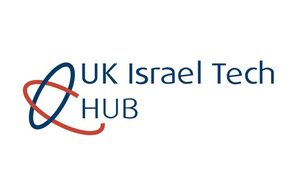Israel represented at first international G8 summit to fight Dementia
UK hosts the first international action on tackling the condition that is becoming the biggest global health challenge facing our generation.

UK Israel Tech Hub
With dementia set to treble globally by 2050, Israel will be playing its role as the UK hosts the first international action on tackling the condition that is becoming the biggest global health challenge facing our generation.
The G8 Dementia Summit, brings together the Health Ministers of the world’s richest nations on December 11th, and Teva Pharmaceuticals, facilitated by the UK Israel Tech Hub at the British Embassy Israel, has been invited to take part.
The Summit, which aims to build a platform for global action against the devastating impact of dementia, is supported by British Prime Minister David Cameron and Health Secretary Jeremy Hunt. Two senior executives from Israeli pharmaceutical giant Teva were invited to attend the summit, and share their knowledge and expertise in order to tackle the global growth of dementia. Dr. Michael Hayden, Head of Global R&D and Chief Scientific Officer, and Paul J. Sekhri, Group Executive Vice President, Global Business Development and Chief Strategy Officer, will represent Teva, and Israel, following discussions lead by the UK Israel Tech Hub at the British Embassy Israel, a leading facilitator of biomed and tech collaborations between Israel and the UK.
Ahead of the summit Dr. Hayden, a world renowned expert in mechanisms underlying neurodegeneration, especially Huntington Disease, said: “Dementia, and indeed the field of neurodegeneration as a whole, is an area of strength for both Teva and Israel. Israel is a world leader in neuroscience research and its innovations are shaping thinking and ongoing research in many areas. Neurodegeneration is complex, but there are distinct overlaps in the pathways of several neurodegenerative diseases, such as Alzheimer’s, Huntington Disease and MS, that might give us some clues to approaches to treatment. Teva undertakes and supports significant research in Israel aimed at bringing together researchers in search for novel approaches to modify the course of the illness.”
Paul Sekhri, who leads Teva’s business partnership strategy at a global level believes: “Strategic collaborations are key in fighting diseases like dementia, requiring vast resources to succeed. Initiatives, such as the G8 Dementia Summit, are therefore hugely important in building a framework for collaboration at a higher, global, level which will be crucial if we want to find answers to perhaps the most pressing question of our time.”
The UK is making the fight against dementia global by hosting the first G8 summit dedicated to seeking an ambitious level of international coordination and an effective response to tackling the condition. Prime Minister David Cameron and Health Secretary Jeremy Hunt will use the UK’s 2013 presidency of the G8 to lead coordinated global action against what is fast becoming one of the greatest pressures on families, careers and health systems around the world.
Speaking at the Alzheimer’s Society Conference in March 2012 Prime Minister David Cameron said: “One of the greatest challenges of our time is what I’d call the quiet crisis, one that steals lives and tears at the hearts of families, but that relative to its impact is hardly acknowledged. We need an all-out fight-back against this disease; one that cuts across society”.
The summit will aim to identify and agree on a new international approach to dementia research, to help forge partnerships between companies, academia and clinicians in order to secure the high level of cooperation needed to reach shared goals faster than nations acting alone.